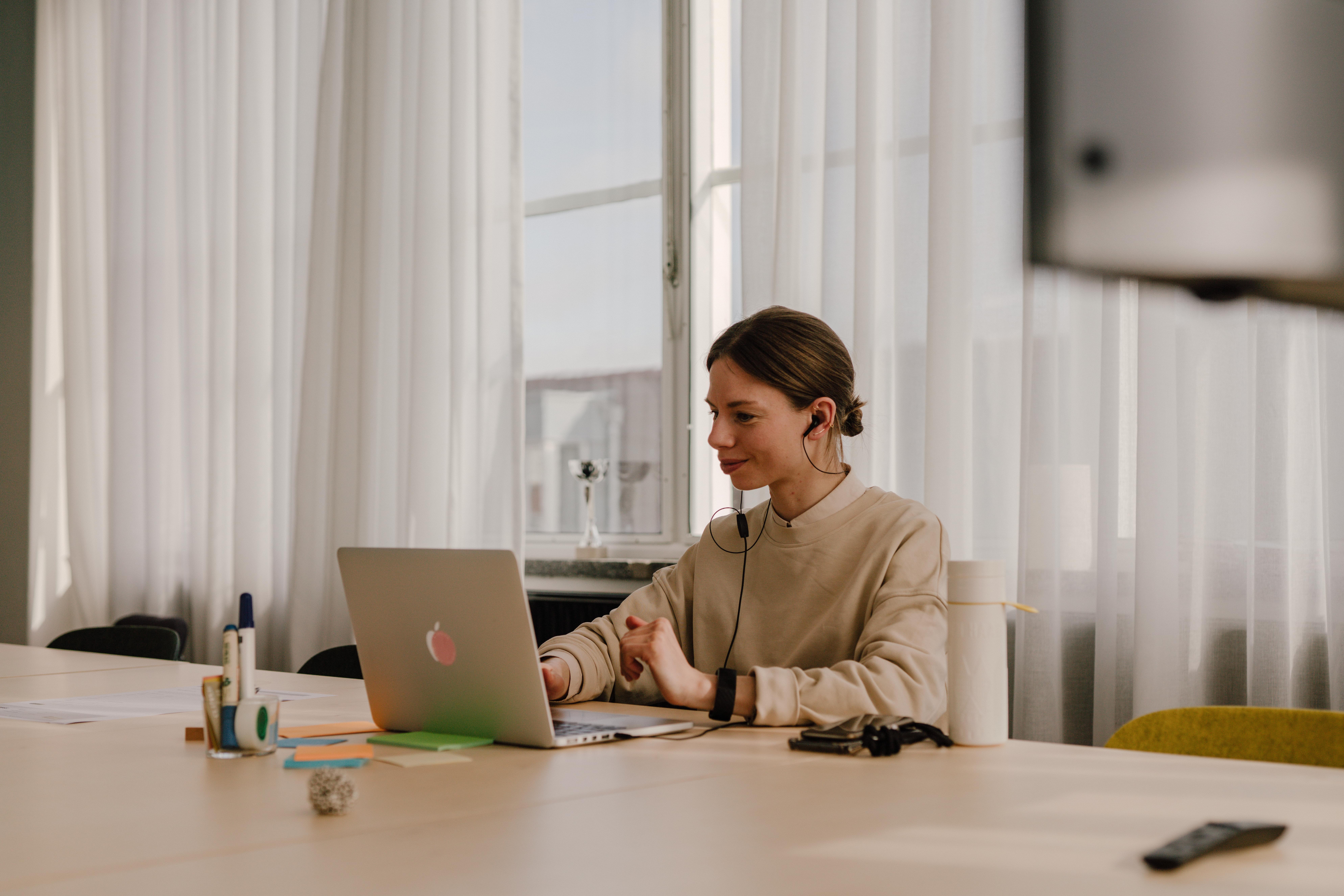Head of Operations Justine de Bruijn is all about optimizing workflows and processes. As Verve is growing, the teams evolve and projects grow more complex. How do you grow as a company in a healthy way? We talk to her about the importance of self-reliance and headspace in creative processes.
You have been working at Verve for a while. What has changed in the past few years?
I’ve always had the ambition to be in the creative industry. And I really wanted to become a part of the process, that’s why I originally started as a Senior Project Manager at Verve. You get to see every step in the creative process, while you’re not having the specialist expertise itself. I get inspired by the team and learn from them through every conversation. And I get to see many different topics and clients, and many new worlds to explore.
A lot of things have changed in the past three years. Verve grew, and my responsibilities naturally grew with it. Now, I’m Head of Operations, which means I’m responsible for the overall operational process. I look at our capacity and the planning as a whole, but also within teams. Next to that I’m managing new business and managing the transfer between welcoming a new client to them working with the teams. I make sure the team knows what they need to do and the client knows who they’re working with and what the process is going to be like.

As a Head of Operations, what does a typical work day look like for you?
I’m kind of like an antenna: I know what is going well and what could be improved within the company. I oversee our capacity, and monitor things like: what’s the balance between the work of the branding team and the design teams?
Next to that, I’m working together with our team leads on how we can optimize our work processes within the teams. Together, we discuss questions like: Why do certain projects take more time than we expected? Why didn’t the team have the tools they need? My role is not only about efficiency or productivity – the mental health of the team is really important too.
I’m kind of like an antenna: I know what is going well and what could be improved within the company.
Verve is growing steadily. How do you ensure that it grows in a healthy way?
I’m part of the core team of Verve, and together we’ve joined a so-called ‘Go Fast Foreward’-programme, to learn about the process of growth as a company. We talked about our goals and it was really interesting to see the different points of interest arise. From a business side, we were interested in further developing our new client profiles. But our employees cared about HR, better time management, and learning and development options. We’re really open to listening to feedback, and shortly after receiving the feedback, we hired an HR management firm to take care of these needs.
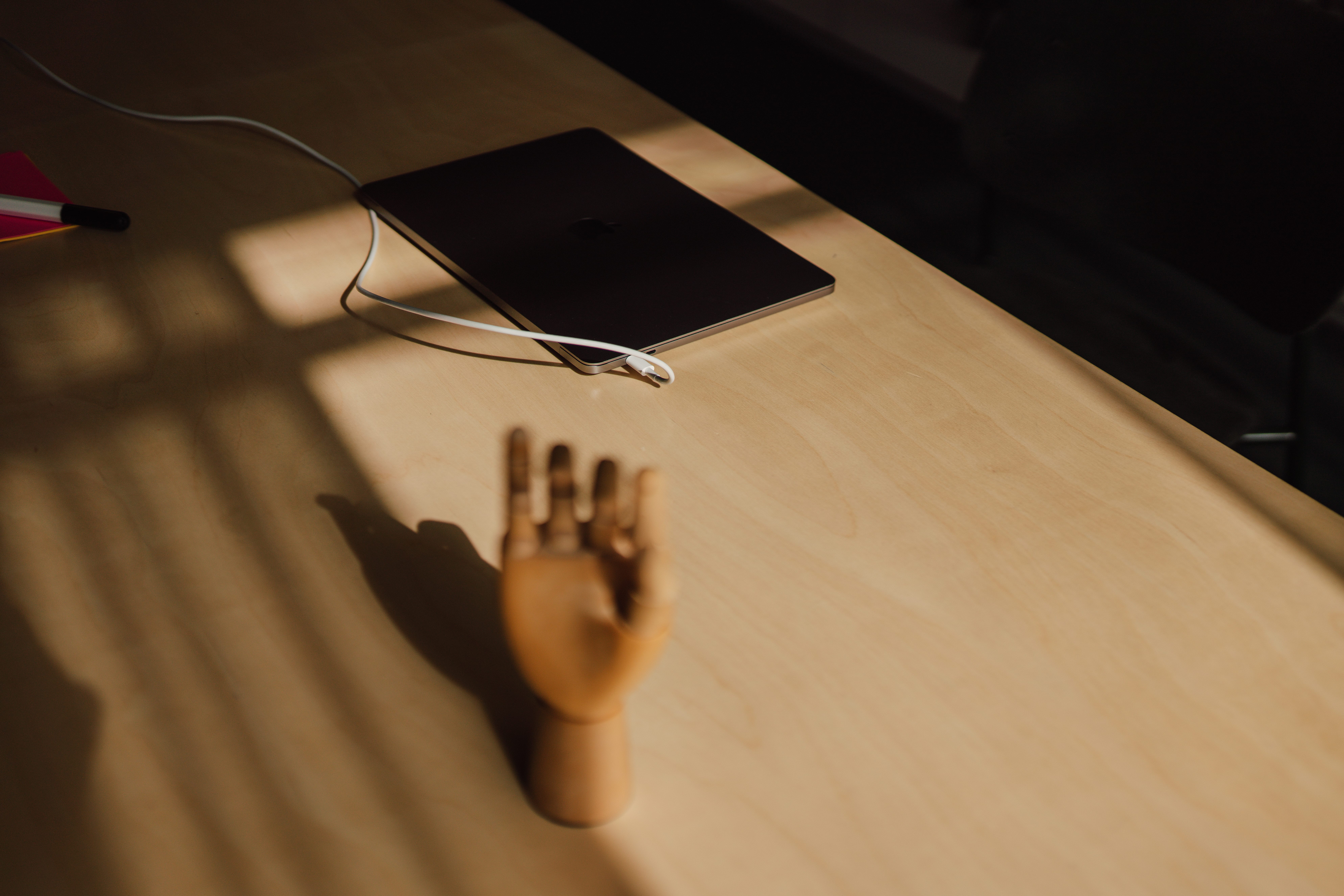
How do you make sure you foster the team culture while growing?
We want to give the teams more responsibility, but at the same time, we don’t want to move to a structure where there are different divisions that don’t talk to each other. So we’re trying to find ways to stay united as a company.
The team has grown too, as in: grown older. Casual weekly gatherings don’t work the way they did a couple of years ago, as a lot of people have families now. So now we're thinking about other options, like a monthly event where the teams can present their work. Whatever the form will be, it's clear that the team is super eager to know what's going on in the company, see each other's work and get inspired.
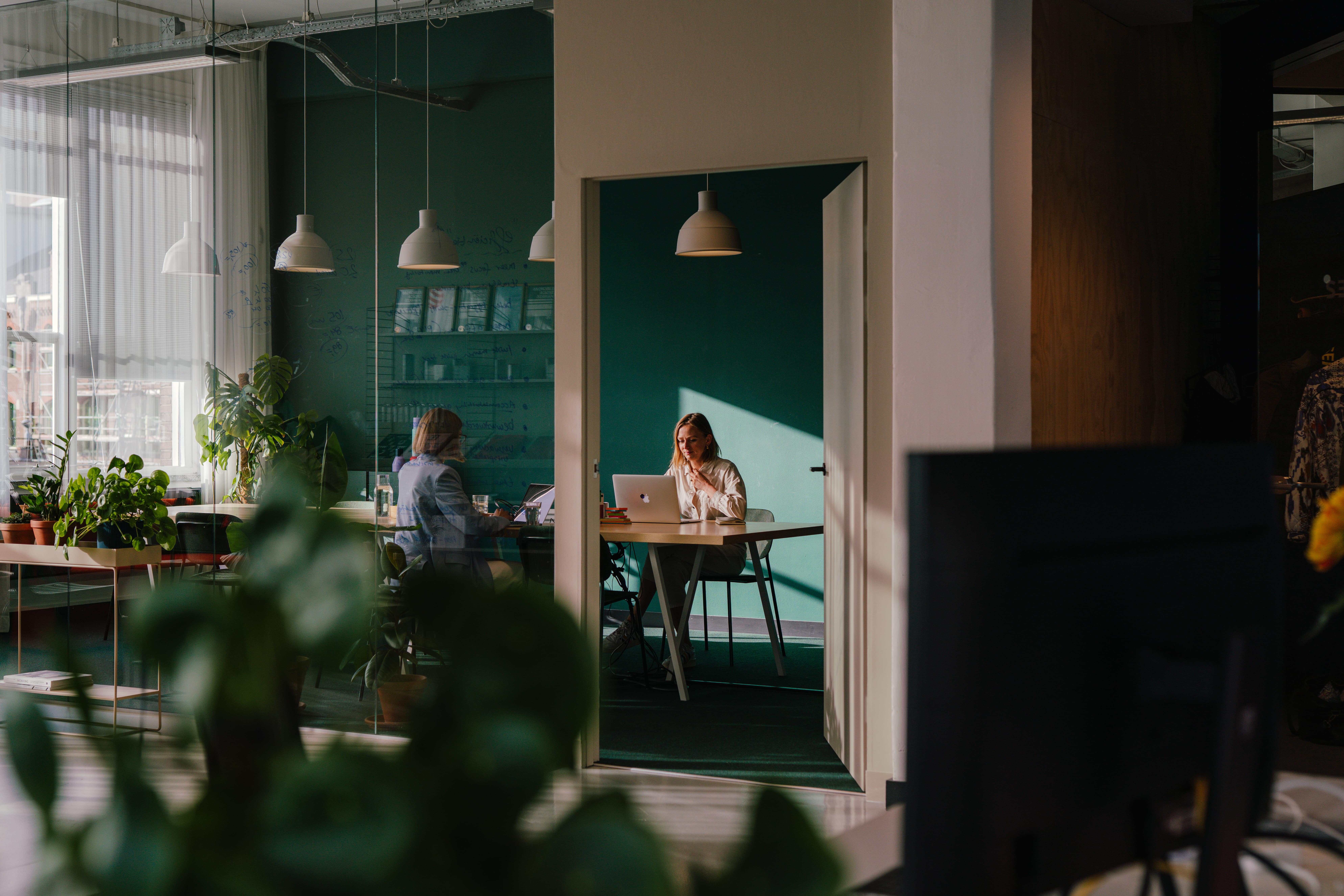
What are some of the growing pains you’ve run into?
One of the challenges was to ensure a good transfer of work when a project is taking more time than we initially planned. When you’re a small company, it is easy to go for a method we call ‘flower arranging’. You have the work gaps filled in by someone who happens to have some spare time in their schedule. This might work if they would be adjusting a poster design. But since we’ve grown a lot bigger now, we can’t just shift a part of a large campaign, or the development of a platform or website, to someone else.
Therefore, we focus on creating headspace for the team. Of course, productivity and efficiency are important KPI’s, but my colleagues aren't robots that just have to fulfil one task. Work must fit not only in practical terms but also on a physical and psychological level. So we’re trying to find the balance between the number of projects that are running at the moment, and the number of projects that are running next to each other. Now, if there’s work that needs to be transferred to someone else, it’s not task-based anymore, but phase-based – so we stay as close to the process as possible.
As a creative in a fast-paced environment, why is having a certain headspace so important?
People often think that it is okay to ask someone to do a small last-minute task. But when you work on a strategy, or want to take a deep dive into a codebase, all peripheral matters lead to the fact that you can’t really focus well. So the more noise I can eliminate, the better products we can offer in the long run.
We’re a flat organisation and we like to keep it that way. But as we’ve grown bigger, we have created some layers, which means we’re naming roles and responsibilities. This creates clarity in the organisation and gives the team the headspace to really get creative.
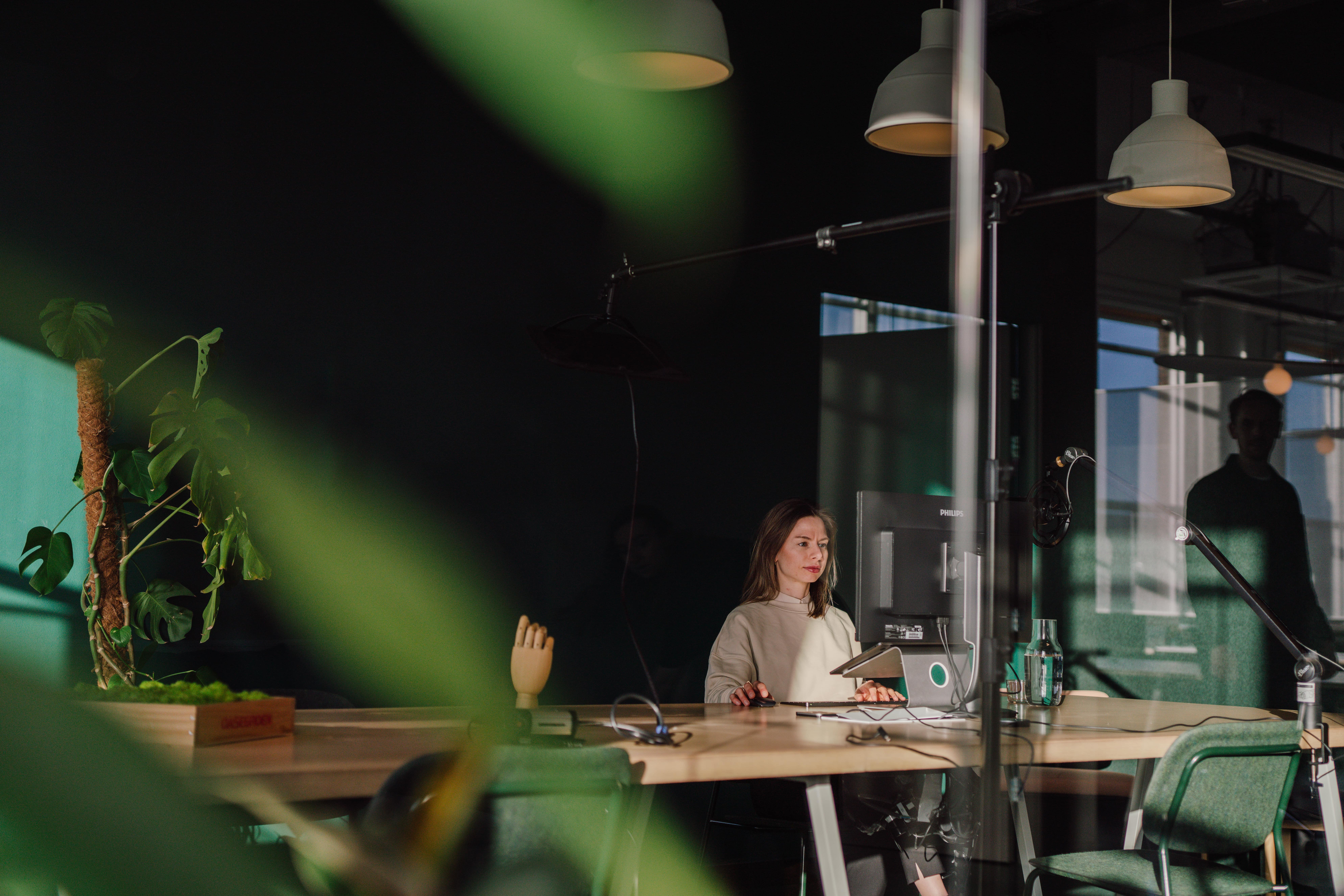
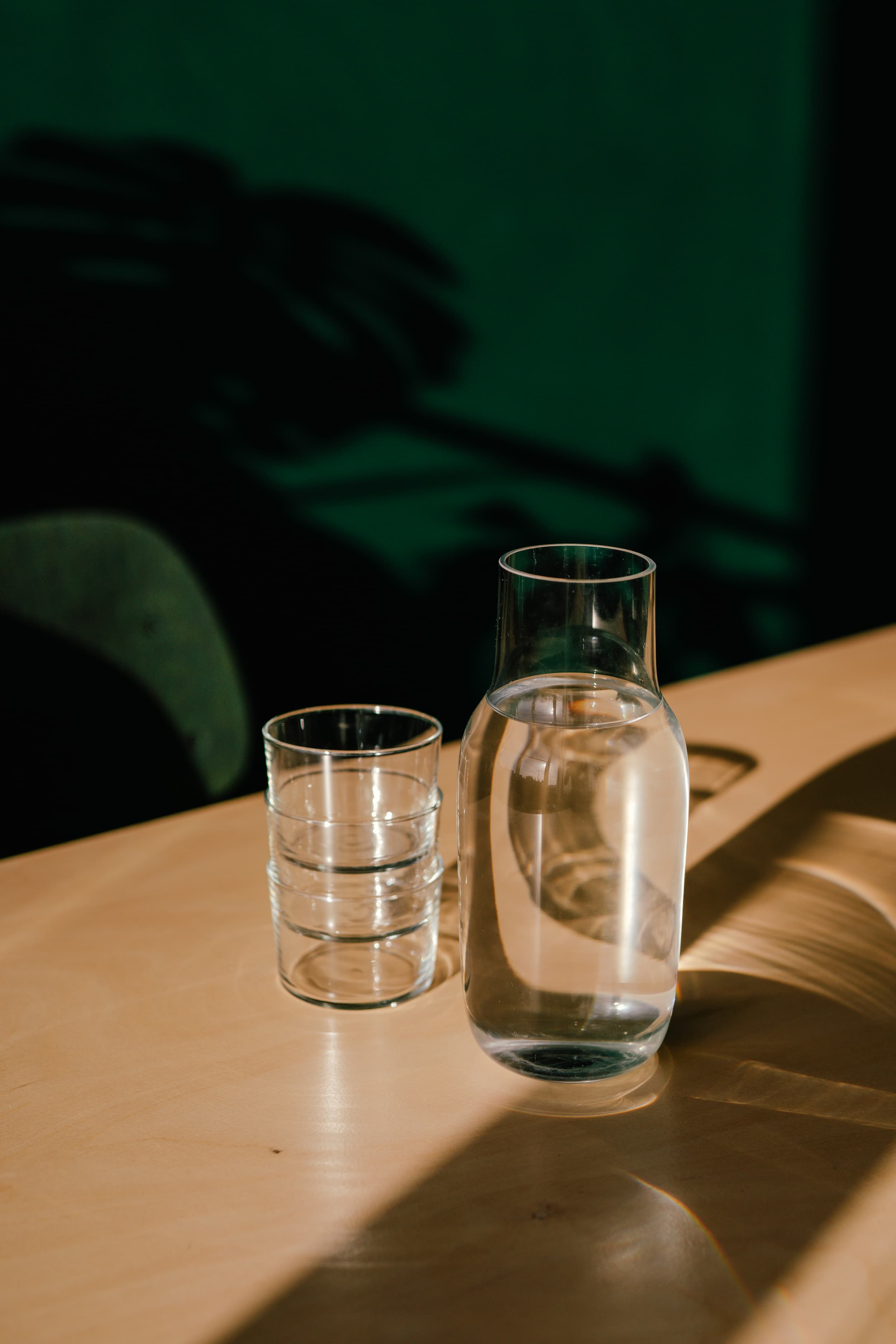
What are some of the biggest challenges of managing a team? And how do you solve them?
I think my job is facilitating the process and listening really really well. I believe that, together with our project managers, I have to help the team make the most of their time, and give them the tools and trust to do their jobs.
Sometimes in the process, you hear someone say: ‘I don’t have enough time.’ But extra time doesn’t fix anything, if you’re not managing your time well. I think it’s comparable to the way people handle their money. If someone is a big spender, giving them more money won’t fix their problem. I think the same goes for time, so I try to sit down with someone to figure out together: What can you do in the extra time? What’s realistic? And how do you manage that time? I want people to take ownership of their own projects.
In the near future, I’d like the team leads to manage their own processes. I’d give them the outline of the project details and the client brief, but how we solve the problem on a micro level, I think the team itself knows best. So what the developer or the brand marketeer needs to do, and when, should be the responsibility of the team leads.
We have a quarterly meeting where the whole company can co-decide on goals and missions.
How do you make sure the teams are equipped to get the best outcome for the client?
A lot of clients don’t know what, for example, a rebranding trajectory is going to be like. For us, it’s really important to truly understand their question and to get an idea of what the organisation is like. Does the client have a large marketing team to produce a lot of content? Or are we working with a small team with little time? Taking such things into consideration helps us to get the scope of the project. We always need to find the balance between creating a product that’s visually striking and a product that really helps the client.
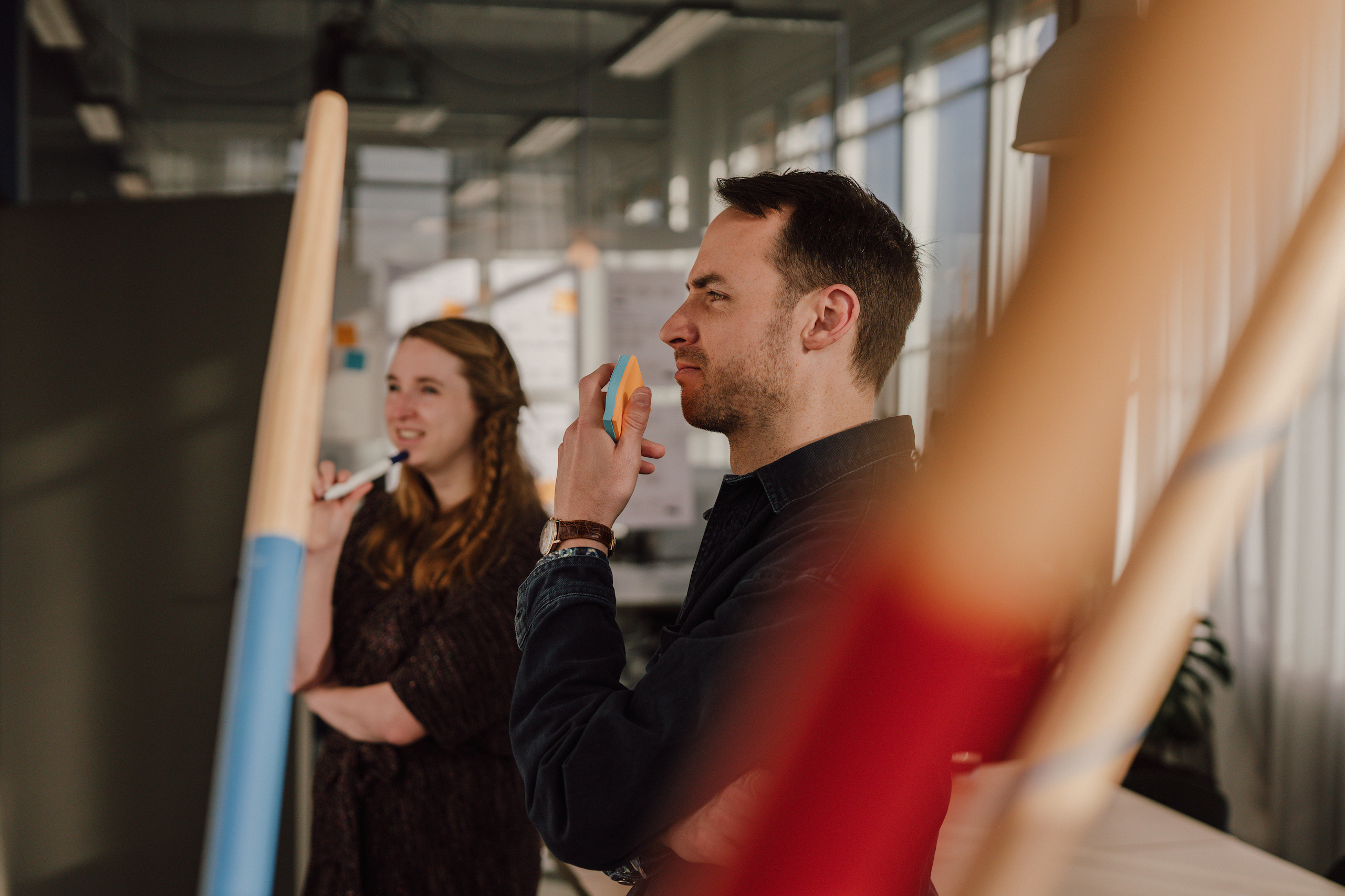
What’s the partnership with the client like during the process? How do you get the most out of each other’s vision?
To me, a partnership is about trust and recognising each other's strengths and weaknesses. A client approaches us with a request for help. Sometimes they know very well what they need, and other times we need to find out the question behind the question. However, in all situations, the client has very relevant and valuable information for us to work with.
We think it's important to build a brand from the foundation up and see a brand as a whole. I really enjoy setting the process out together with a client: from the exploratory phase to the guidance and roll-out of the entire project. What I like about Verve is that we dare to challenge the client and ask questions. Is this really what is needed? Or are we missing something?
I think the best projects are created in close cooperation with the client. The client knows their product, their customer and their goals best. Translating this information into a rock-solid strategy, identity or website is, in turn, our expertise. So I see our strengths as complementary and I prefer to see the client as part of the team. In the future, I would like to get around the table with clients more, to see what the brand needs in the long term. That way, we become true partners in building the brand and the ambitions of the client.
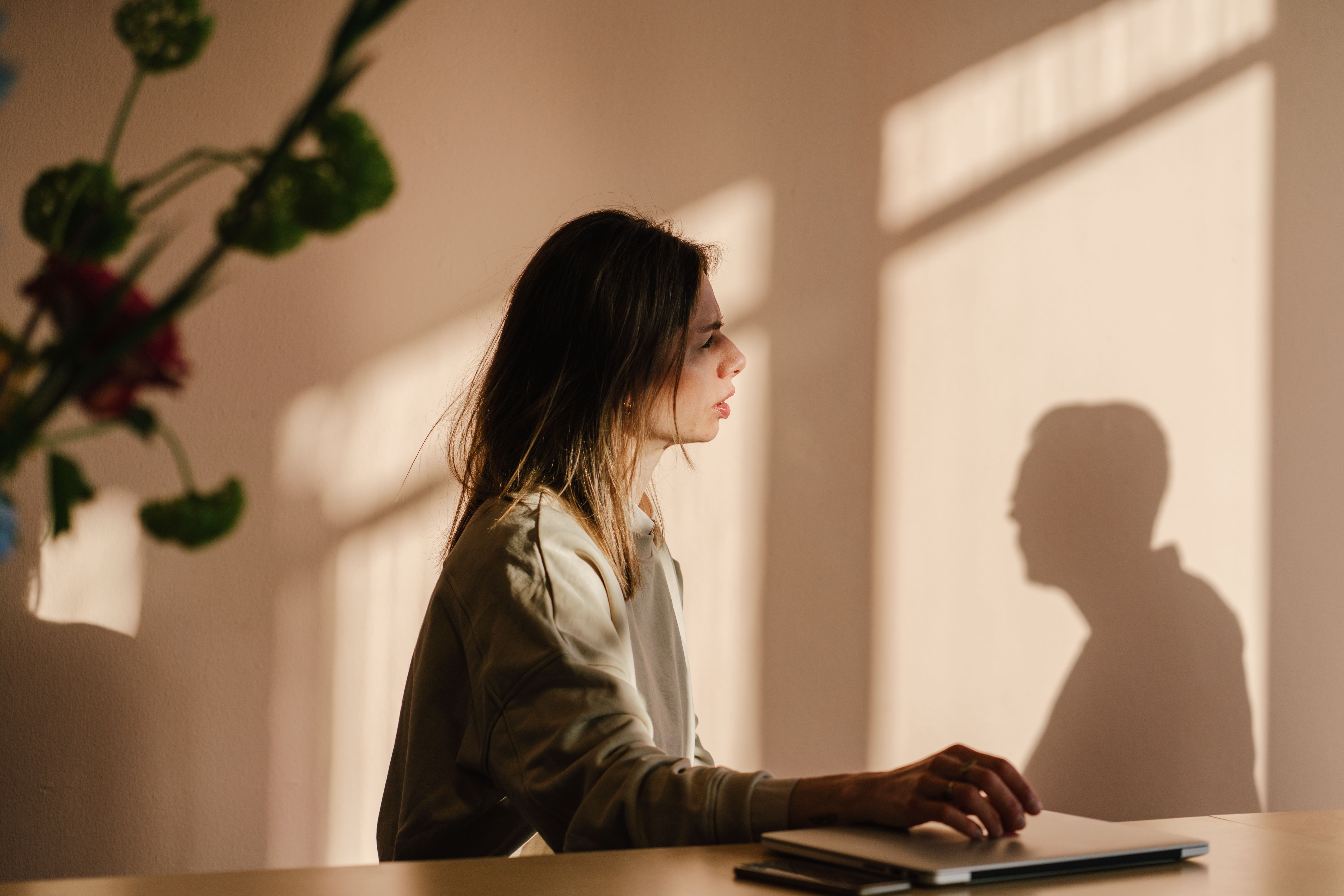
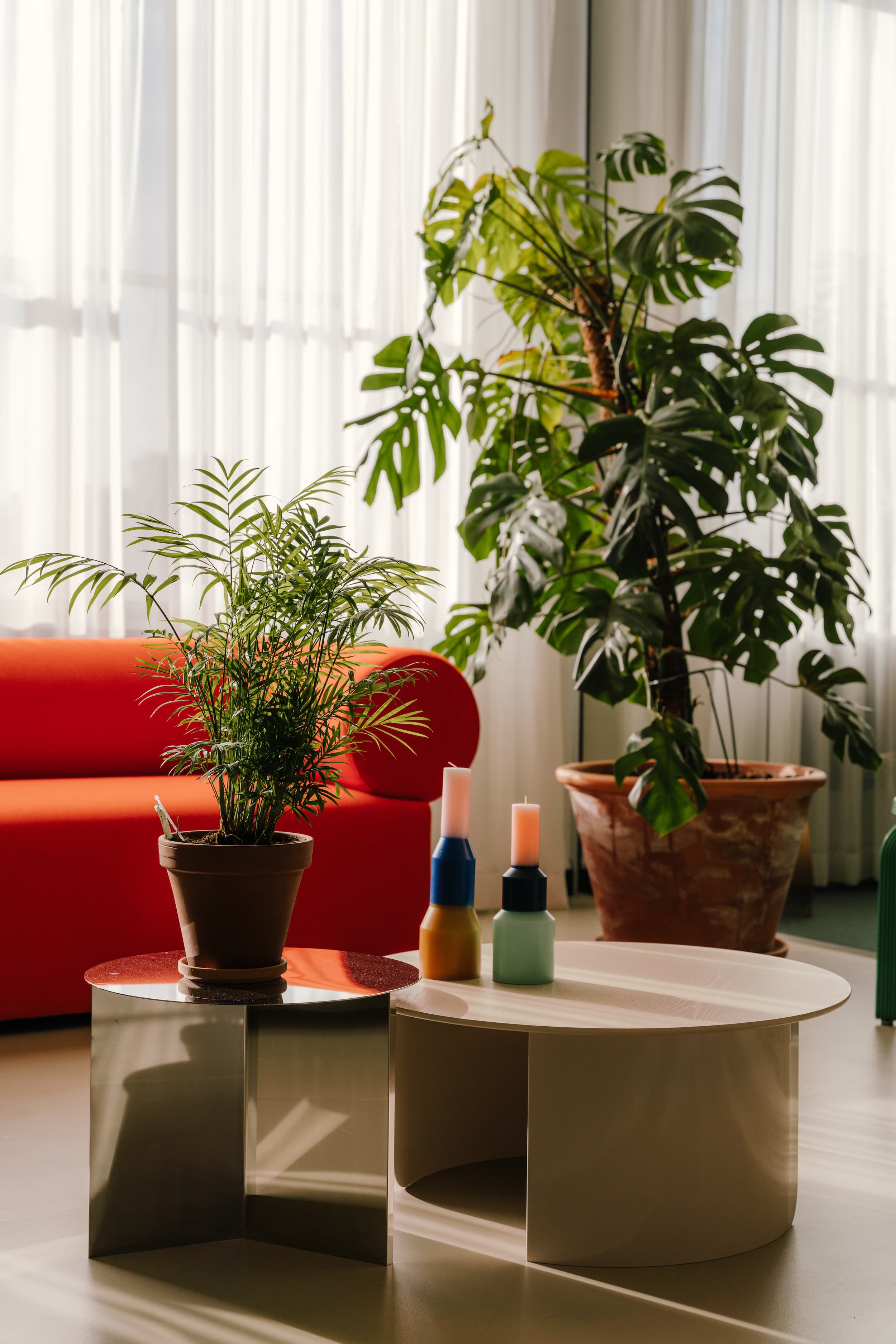
How do you develop yourself when you’re the one making sure other team members grow?
Firstly, by coming to work every day. I feel challenged and that gives me the feeling I’m growing. Not only by talking to the team and the clients, but also by trying to find things out by myself when I run into a problem.
Next to that, I started doing intervision. I find it really inspiring to connect with other professionals with the same roles and within the same industry. I’m in a group with four other women with the role of Head of Operations, all in the creative field. Every 4-6 weeks, we come together and we treat a certain case and we discuss it together. In the process, we gain new insights. It’s interesting to see how other companies tackle problems and use that knowledge to our benefit.
During Covid-19 lockdown, I went on walks a lot and listened to podcasts. ‘Vallen en opstaan’ is a Dutch podcast I really like, because it’s about entrepreneurs and the decisions they make. I find it inspiring to listen how ‘I have this idea’ turns into ‘how do we turn this into a success’. I like to listen to the different routes that are taken.
Just as excited about design and technology as we are and ready to shake up the status quo? Come work at Verve
